促进中小企业发展的财税政策实证研究——以杭州市为例
VIP免费
浙江财经学院硕士学位论文
I
摘 要
中小企业作为我国国民经济的主体,在促进国民经济发展、调整收入差距、
解决就业压力、提高技术创新、加速社会进步等多方面都发挥着不可替代的作用。
虽然在改革开放以来,我国政府加速市场经济改革,调整国民经济结构期间推出
了大量促进中小企业发展财税政策。但总体来说政策的相关内容十分零散,财税
支持政策的内容还比较狭隘。结合我国中小企业的现状,通过为中小企业创造一
个良好的财政税收环境,来不断提高财政税收的政策效应,是现阶段广大学者和
政策制定者较为关注的问题。虽然国内研究支持中小企业发展的财税政策方面的
文献较多,但无论从财税政策具体落实状况到对中小企业发展的影响方面的实证
研究十分缺乏。
本文为了完善这一研究领域的内容,将以杭州市为样本,通过因子分析和回
归分析的方法,对财税政策支持和中小企业绩效的关系进行研究,分析财税政策
支持中小企业的的效果如何,以及财税政策中哪类政策对中小企业绩效中的盈利
能力、偿债能力和成长能力影响更大,不仅能够帮助中小企业加强绩效管理,而
且能在一定程度上为有关政策制定部门提供政策建议,具有重要的理论及实践意
义。
本论文的主要研究内容分为以下几个方面:(1)分别从政府干预论和新制度
经济学的政区竞争理论两方面对政府扶持中小企业发展进行理论分析,以中小企
业收益的角度论述财税政策支持中小企业发展的必要性。(2)通过大量文献资料
的阅读整理,梳理了支持我国中小企业发展的财税政策框架,并且从产品市场、
技术创新、组织管理、人力资源管理和成长资金等方面分析了财税政策对中小企
业成长的作用机制。(3)通过文献阅读、专家打分、访谈研究,提出了财税政策
二元测评体系和中小企业绩效评价的三元测评体系,合理地量化评价指标。(4)
以杭州市中小企业为对象,进行了问卷调查,根据调查所得数据,利用因子分析
法分别提取财税政策和中小企业的绩效的公共因子,利用因子回归分析财税政策
支持对中小企业绩效的影响。
最后,回顾并总结了实证分析的结论:一是结合近些年中央及地方政府支持
中小企业发展的财税政策,可以划分为财政政策和税收政策两个维度;中小企业
绩效评价可以分为成长能力、盈利能力、偿债能力三元指标体系进行衡量也是合
理的;二是财税政策支持对中小企业的盈利能力、偿债能力和成长能力分别具有
显著的影响。另外,结合所得结论从财税支持的角度阐述了促进中小企业发展的
政策改进建议。
浙江财经学院硕士学位论文
II
关键词:财税政策;中小企业绩效;实证研究;因子分析
浙江财经学院硕士学位论文
III
ABSTRACT
Small and medium-sized enterprises are important force to national economic and
social development, to narrow the income gap, to solve the employment problem, and to
improve technological innovation. In recent years, although the government introduced
several policies which are related to supporting the development of SMEs, the policy is
very fragment and the contents of fiscal policy are not enough. How to creat a favorable
fiscal and tax environment for SMEs combined with the current situation of SMEs in
china, so that the fiscal and tax policies could be effective. With the increasing of policy
supporting, it is important and necessary to do some researches to the thesis fiscal and
taxation policies supporting influences the performance of SMEs.
Based on the literature reading, interview and questionnaire survey, the paper uses
empirical analysis method to analysis the relationship of fiscal and taxation policies
supportment and SMEs performance. This paper is mainly composed of several aspects
as follows:Firstly, the paper reviews different types of fiscal and taxation policy
supporting and the relationship between policy supporting and performance, which
gives the direction of the paper.Secondly,through literature reading, expert scoring,
interview research, It proposed two-menber evaluating indicator systems of fiscal and
taxation policies and six-member evaluating indicator systems of SMEs, then quantized
reasonable evaluating indicator, determined the research ideas, designed questionnarires,
carried on the theory supposition.Afterwards, it carried on the questionnaire suvey to
more SMEs in Hangzhou. once more, use investigation questionnaire and scale of small
and medium-sized enterprise as empirical research object to conduct field research.
According to the survey data, we use factor analysis to extract the common factor of
fiscal and taxation policies and the performance of SMEs, which will be used to
analysis the impact of fiscal policy to support the SMEs performance through
regression.
At last, review and summary the conclusions: one is that combing the supportment
from central and local governments for SMEs, fiscal and taxation policies could be
divided into fiscal policy and taxation policy, while the performance of SMEs includes
growth capacity, profitability and solvency. The other one is that not only fiscal policy
but also taxation policy has a significant impact on SME profitability, solvency and
浙江财经学院硕士学位论文
IV
growth-capacity. Then elaborated recommendations to promote the development of
SMEs perspectively from fiscal policy supporting.
Keyword: Fiscal and taxation policies; Small and medium-sized enterprise performance;
Empirical Research;Factor Analysis
浙江财经学院硕士学位论文
V
目 录
第一章 绪论 ......................................................... 1
第一节 研究背景及意义............................................ 1
第二节 国内外研究综述............................................ 2
第三节 研究内容及方法模型........................................ 5
第四节 研究结构与不足之处........................................ 7
第二章 支持中小企业发展的财税政策基础理论分析 ....................... 9
第一节 中小企业生存发展的基础理论 ................................... 9
第二节 财税政策支持中小企业发展的相关理论 .......................... 11
第三节 财税政策支持中小企业发展的客观必要性 ........................ 12
第四节 中小企业财税支持政策构成及作用路径 .......................... 14
第三章 研究设计 .................................................... 18
第一节 调查问卷设计 ................................................ 18
第二节 数据收集 .................................................... 20
第四章 实证分析 .................................................... 21
第一节 统计描述 .................................................... 21
第二节 因子分析与效度、信度分析 .................................... 22
第三节 回归分析 .................................................... 28
第五章 研究结论及建议 .............................................. 32
第一节 主要结论 .................................................... 32
第二节 研究建议 .................................................... 33
参考文献 ........................................................... 35
附 录 .............................................................. 37
致 谢 .............................................................. 40
摘要:
展开>>
收起<<
浙江财经学院硕士学位论文I摘要中小企业作为我国国民经济的主体,在促进国民经济发展、调整收入差距、解决就业压力、提高技术创新、加速社会进步等多方面都发挥着不可替代的作用。虽然在改革开放以来,我国政府加速市场经济改革,调整国民经济结构期间推出了大量促进中小企业发展财税政策。但总体来说政策的相关内容十分零散,财税支持政策的内容还比较狭隘。结合我国中小企业的现状,通过为中小企业创造一个良好的财政税收环境,来不断提高财政税收的政策效应,是现阶段广大学者和政策制定者较为关注的问题。虽然国内研究支持中小企业发展的财税政策方面的文献较多,但无论从财税政策具体落实状况到对中小企业发展的影响方面的实证研究十分缺乏...
相关推荐
-
建筑工程投标文件范本-(格式)VIP免费
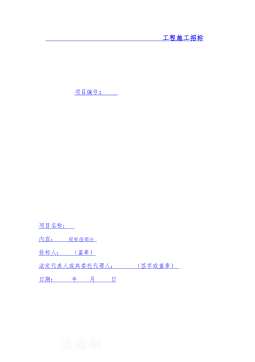
 2024-11-22 17
2024-11-22 17 -
幕墙工程施工组织设计方案VIP免费
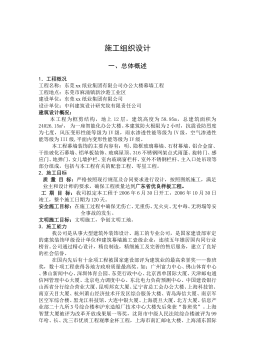
 2025-01-09 6
2025-01-09 6 -
建筑商品砼生产项目创业计划书VIP免费
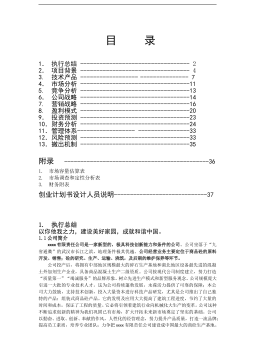
 2025-01-09 10
2025-01-09 10 -
建筑工程商业计划书模板VIP免费
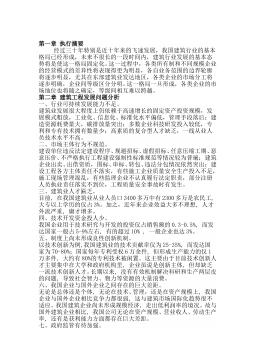
 2025-01-09 8
2025-01-09 8 -
工程项目施工计划书VIP免费
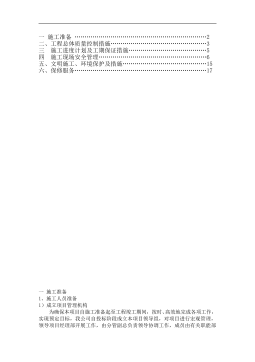
 2025-01-09 6
2025-01-09 6 -
《专业型文档》建筑企业计划书VIP免费
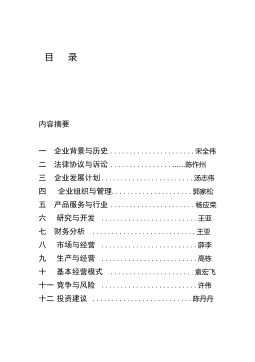
 2025-01-09 8
2025-01-09 8 -
xx水库灌区管道工程水工图纸C1VIP免费

 2025-01-09 13
2025-01-09 13 -
邮政区域仓储配送中心VIP免费
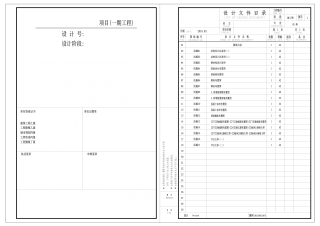
 2025-01-09 8
2025-01-09 8 -
疾病预防控制中心招标文件VIP免费
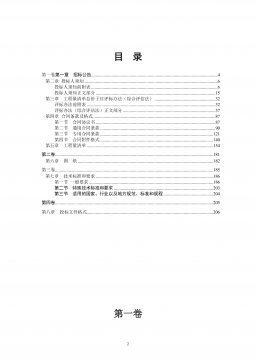
 2025-01-09 13
2025-01-09 13 -
体育健身中心施工招标文件VIP免费
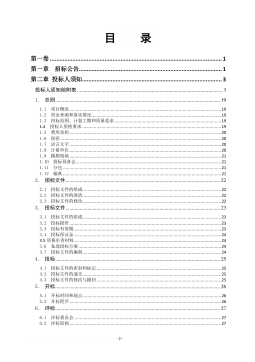
 2025-01-09 10
2025-01-09 10
作者:周伟光
分类:高等教育资料
价格:15积分
属性:41 页
大小:698.16KB
格式:PDF
时间:2024-09-29






